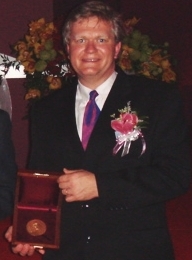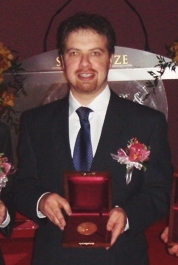User blogs
Table of Contents: http://prespacetime.com/index.php/pst/issue/view/30 Special Reports --------
If There Is a Nobel Prize for the Higgs Boson, Who Will Get It? (by Philip E. Gibbs) Articles --------
The Classical Canonical Presentation of Any Quantum System upon Quantization Opens a Door to the System’s Proliferation (by Steven K. Kauffmann)
Quantum Adeles and Quantum Hilbert Spaces (by Matti Pitkänen)
GR Articles --------
Kantowaski-Sachs Dark Energy Cosmological Model in a Saez-Ballester Theory of Gravitation (by Shivdas D. Katore, A. Y. Shaikh, G. B. Tayade) Exact Vacuum Solutions of Five-Dimensional Bianchi Type-I Space-Time in f(R) Theory of Gravity (by Vipin K. Jaiswal, Rupesh A. Hiwarkar, Jyotsna K. Jumale, Keshao D. Thengane)
Essays --------
Educational Horizons and the Frontiers of Science (by Jonathan J. Dickau)
Book Reviews --------
Review of Physics on the Fringe (by Philip E. Gibbs)
News --------
LHC Update: Another Week, Another Inverse Femtobarn (by Philip E. Gibbs)
Higgs Combination Applet & 4th FQXi Essay Contest (by Philip E. Gibbs)
Letter to the Editor --------
Maxwell's Theory of Gravity and Thermodynamics (by Mohammed Alzain)
 |  |  |
This year's Nobel Prize in physics went to Saul Perlmutter, Brian P. Schmidt, Adam Riess. They well deserve the prize and congratulations!
As blogged by Philip E. Gibbs at viXra log: "[i]n the late 1990s these astronomers upset the prevalent belief that the universe’s acceleration must be slowing down due to the pull of gravity. They observed the brightness of distant supernovae in the universe, using them as standard candles to gauge distance. A comparison of the redshift and the brightness was found to be more consistent with the view that the rate of expansion is increasing."
According to Gibbs, "[t]he simplest way to model the expansion is to add a cosmological constant term to Einstein’s gravitational field equations. Such a term means that energy is added to space as it expands which must be compensated by negative gravitational energy from the increasing rate of expansion. The popular term dark energy has been used to refer to this mysterious feature of space and time but its origin remains a mystery and the Nobel prize has only been awarded for the discovery of the acceleration, not for dark energy."
The theoretical side of this amazing discovery is very unsettling and the whole of physics may be transformed by further developments.
Huping Hu & Maoxin Wu
October 4, 2011
